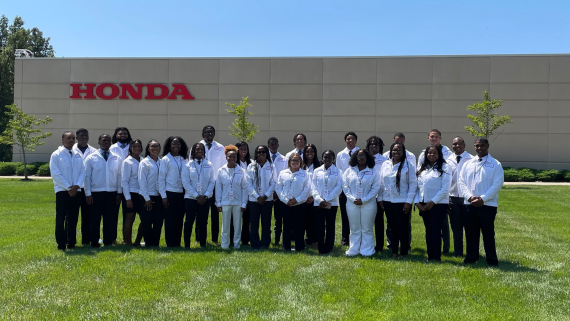Honda Will Aid Children of Flint
There are many people adversely affected by the water crisis in Flint, Michigan, where an aging infrastructure has made the water unsafe for human use or consumption. But perhaps no group of Flint residents is more vulnerable to the crisis than the children – whose exposure to lead and other substances in the water can cause long term health implications.
The Honda family of companies in North America has made a $25,000 donation to the Flint Child Health & Development Fund (FCHDF). The funds will be used to aid Flint’s children, particularly those ages 0-6. Lead poisoning can produce lifelong health effects, and developing children who are exposed to lead even at low levels are at risk of brain damage, behavioral problems and learning disabilities.
The donation will help ensure that the children are afforded the resources and interventions necessary to overcome this population-wide exposure to lead. These services include childhood health and development assessments, access to infant and childhood behavioral health services and early childhood education, among many others.
“The children of Flint are facing unique risks in this situation, and Honda has a long tradition of providing aid to children in need,” said Takuji Yamada, president and CEO of Honda North America, Inc. “We all hope that those affected in Michigan will soon recover from this very challenging crisis.”
The FCHDF is a partner organization with the Community Foundation of Greater Flint, an organization at the forefront of coordinating the health and human services response to the Flint water crisis.
“We are humbled and grateful for the generosity of Honda in supporting Flint’s children through their gift to the Flint Child Health and Development Fund,” said Kathi Horton, President, Community Foundation of Greater Flint. “The Fund will support critical public health, medical, and community-based interventions that address the long-term impacts experienced by Flint children who have been exposed to lead through their drinking water.”

